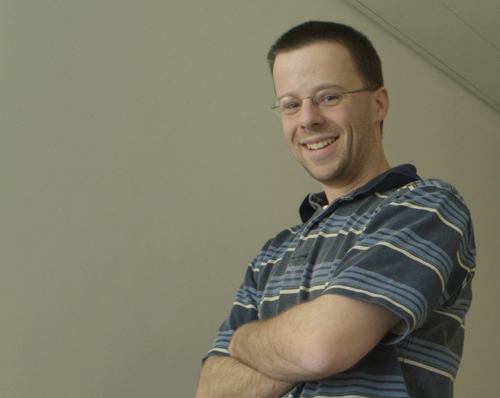
Imagine you are about to invest some money through a financial planner. How much faith should you have in your planner’s definition of risk? Or imagine you are making a decision about accepting a particular medical treatment. How should you make sense of the risks outlined by your doctor?
It may be more complex than you think, says sociology professor Patrick Parnaby. He’s been conducting research on the ways that financial planners communicate with their clients about risk, and now has a new study showing that physicians use similar approaches.
“When you see that risk is discussed in similar ways across two completely different fields, I think it points to something about us as people,” Parnaby says. “One thing that stunned me was that both the financial planners and the physicians made a fundamental logical error by speaking of an artificial timeline.”
For example, the financial planners would tell clients thinking of investing in the stock market that the risk of a market crash was very small. Then they would add “so you don’t have to worry about it happening in the next month or the next year.” That timeline, says Parnaby, is entirely artificial. “Risk has nothing to do with when something might happen. But saying that encourages people to invest.” The risk of something happening might be very small, but that doesn’t mean it couldn’t happen tomorrow.
In a similar way, research demonstrates how doctors often explain the odds of survival in terms of how long a patient has to live. They don’t really have an accurate time frame, says Parnaby, but doctors feel pressure to provide an estimate because it’s what the patient wants.
“People believe that risk is a scientific thing, but it’s also a moral or ethical issue,” explains Parnaby. “Doctors, for example, make a value judgment when they choose which risks to focus on when talking to a patient. It also depends on what you care about; if you don’t care about losing the money you’ve invested, there’s no risk at all.”
Parnaby interviewed more than 45 financial planners and recorded meetings between financial planners and their clients for his earlier research. For his new study, he compared that data with existing data on the sociology of health.
“The doctors and financial planners are not being deceptive; they are using their best judgment, but the reality is that nobody knows. I think this speaks to our desire to know what tomorrow is going to bring, even though it is not truly predictable,” says Parnaby.
Two of the questions he asked financial planners highlight the problem. . The first was: “Do you ever have clients assume you can see the future?” Parnaby says, “The financial planners laughed and joked that clients seemed to think they had a crystal ball. They readily acknowledged that they couldn’t predict the future.”
He followed up that question with another: “How certain are you that the markets will always bounce back?” Most planners responded that they were absolutely certain. Only one of the more than 45 interviewed by Parnaby seemed to genuinely see the contradiction, admitting that it was really a leap of faith.
While the results of his interviews and observations were generally consistent among financial planners at different levels of income, Parnaby did find that those financial planners who had been in the business longer tended to be more willing to truly acknowledge the uncertainty of their work with fewer contradictions.
An upcoming paper will describe some of the other behaviours that can lead to what he calls “certainty creep.” These are “the little things that financial planners often do or say that make the future seem more certain than it really is,” says Parnaby. “It’s a combination of things─ a professional appearance, a nice office, certificates on the wall, and personal stories that suggest a sense of certainty about the future.
Recognizing the limits of certainty hasn’t stopped Parnaby from seeking professional advice regarding his own finances, and he stresses that his research wasn’t about deception insofar as the people he interviewed were decent, caring and well-trained professionals. “Yes, I have a doctor, and I have a financial planner, too,” he says. “We have incredible discussions. I always want to know if they are really sure, really certain.”
Learn more about risk at Parnaby’s website: www.riskresearch.ca.